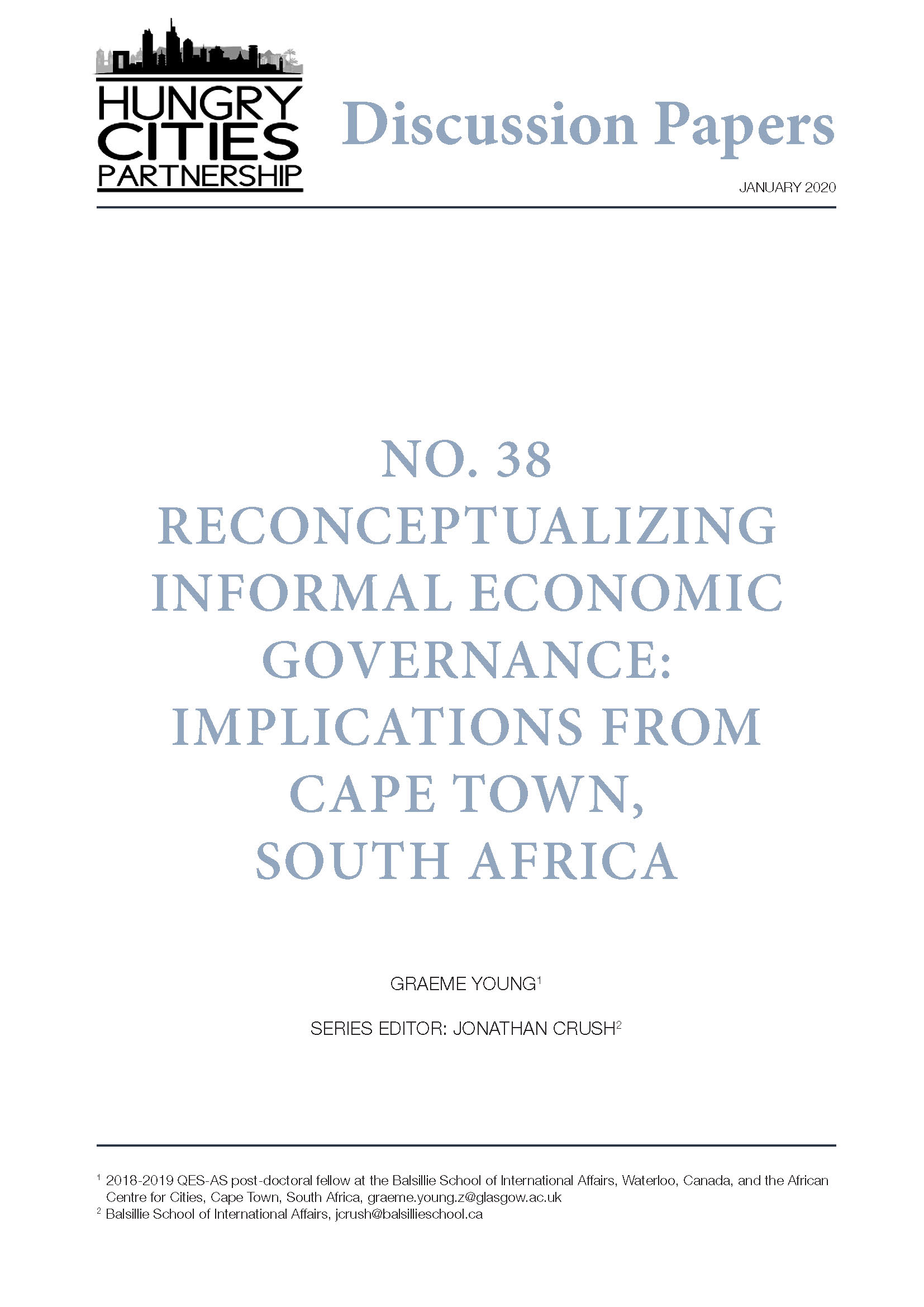As awareness of the centrality of informality in urban development processes in the Global South is slowly incorporated into the international development agenda, a full understanding of the myriad ways in which informal economic activity is governed has become increasingly urgent. This discussion paper seeks to address this need through an analysis of informal economic governance in Cape Town, South Africa. It first outlines a general theoretical framework for understanding the governance of informal economies that focuses on the logics that inform governance, the systems in which governance take place, the modes in which governance operates, and the forms that governance takes. It then turns its attention to the governance of informal economic activity in South Africa, using this framework to evaluate international, national, provincial, and local governance and highlighting the shortcomings surrounding policy development, incoherence, and poor implementation that characterize each. Using survey data collected by the Hungry Cities Partnership (HCP) in Cape Town, it examines the motivations of and challenges faced by those who engage in informal food sector economic activity to offer insights into a more effective approach to informal economic governance that prioritizes anti-poverty measures and the creation of formal employment opportunities. Policy recommendations and potentially valuable avenues for further research are then outlined.

